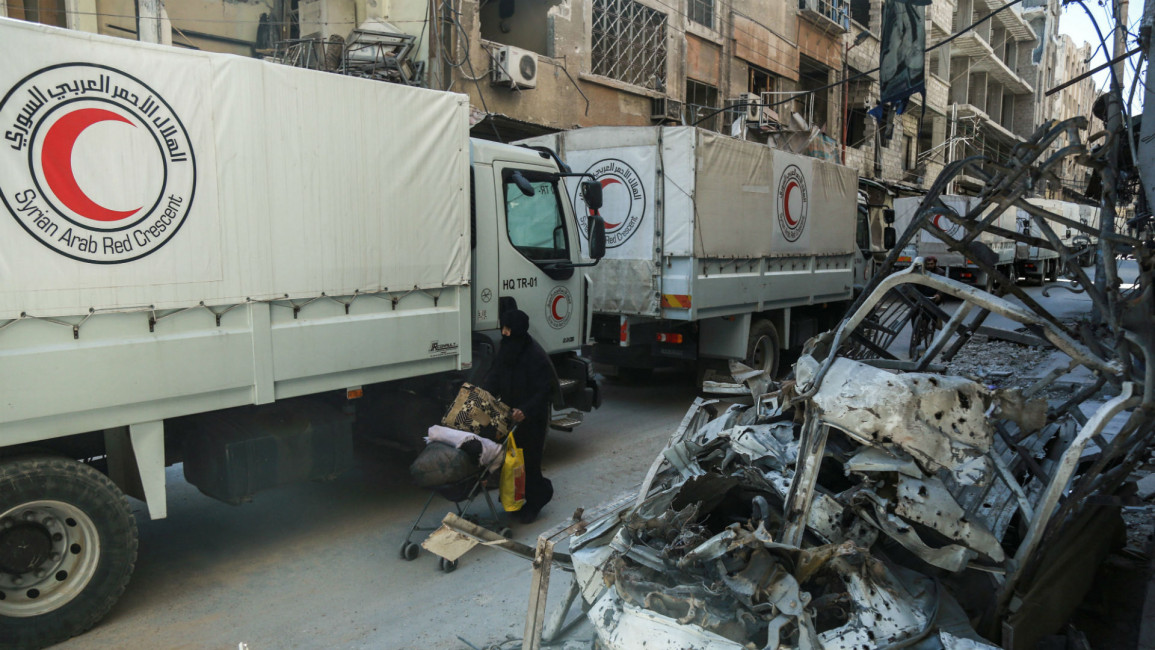WHO reports surge in airstrikes on Syrian medical targets
Through January and February the United Nations health agency's monitoring mechanism verified 67 attacks that hit medical targets, WHO spokesman Christian Lindmeier told reporters in Geneva.
That marks more than 50 percent of the 112 such attacks recorded throughout 2017, he added.
Nearly half of the strikes on medical facilities this year were recorded in Eastern Ghouta, where the government is waging a devastating offensive to retake an area it lost in 2013.
The facilities hit include 20 hospitals, 16 health facilities, two ambulance stations and one medical supply warehouse.
Lindmeier said WHO was not in a position to assign blame for any specific strike but warned that targeting medical facilities was illegal.
"Medical facilities and medical personal have special protection under the international humanitarian law," he said.
"WHO calls all parties in Syria to immediately halt attacks on medical and humanitarian personal, their means of transport and equipments as well as hospitals and medical facilities.”
The comments came as an aid convoy consisting of 13 trucks and food parcels that are expected to assist up to 12,000 people crossed into Eastern Ghouta on Friday. The delivery is the remainder of a prior humanitarian mission that was cut short due to escalating violence the previous week.
Since the Syrian regime began its latest Eastern Ghouta offensive on 18 February, nearly all the farmland has been retaken. Only about half of the rebel-held enclave is still under opposition control.
The UN and aid agencies have pleaded with the Syrian regime and its Russian ally to halt the offensive that has left more than 1,000 civilians dead, according to Medecins Sans Frontieres.
Russia said it opened safe passages for civilians and fighters to leave the enclave, but nobody has done so yet.
Damascus and Moscow accuse rebels of preventing civilians from fleeing the area - a charge they deny.
Despite a brief pause in fighting, the Syrian Observatory for Human Rights reported that warplanes struck Douma just after aid convoys entered the area.
Eastern Ghouta's residents expect the enclave to follow a similar trajectory as Eastern Aleppo in 2016 - in which airstrikes followed by a regime offensive led to the area's recapture and heavy civilian casualties.



